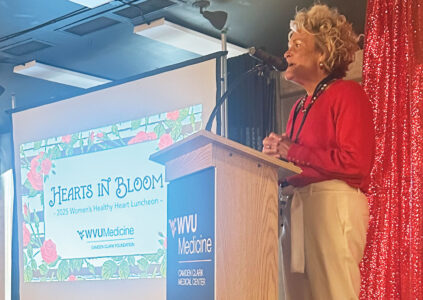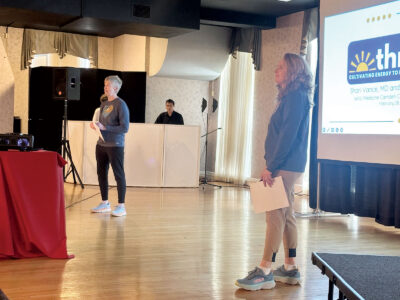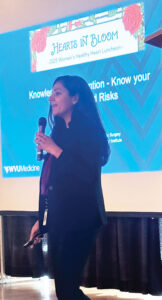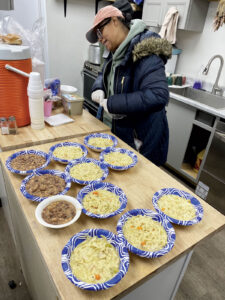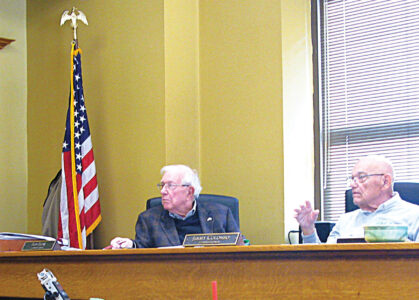Camden Clark Foundation puts hearty effort into women’s luncheon
- Camden Clark Foundation Executive Director Kim Couch welcomes attendees to the 2025 Women’s Healthy Heart Luncheon at the Parkersburg Art Center Friday afternoon. (Photo by Gwen Sour)
- From left, Dr. Sharilida Vance and Dr. Kim Stooke give a presentation on Thrive, a program that focuses on energy management during the 2025 Women’s Healthy Heart Luncheon at the Parkersburg Art Center on Friday afternoon. (Photo by Gwen Sour)
- Dr. Jahnavi Kakuturu gives a presentation on heart health in women at the 2025 Women’s Healthy Heart Luncheon at the Parkersburg Art Center on Friday afternoon. (Photo by Gwen Sour)
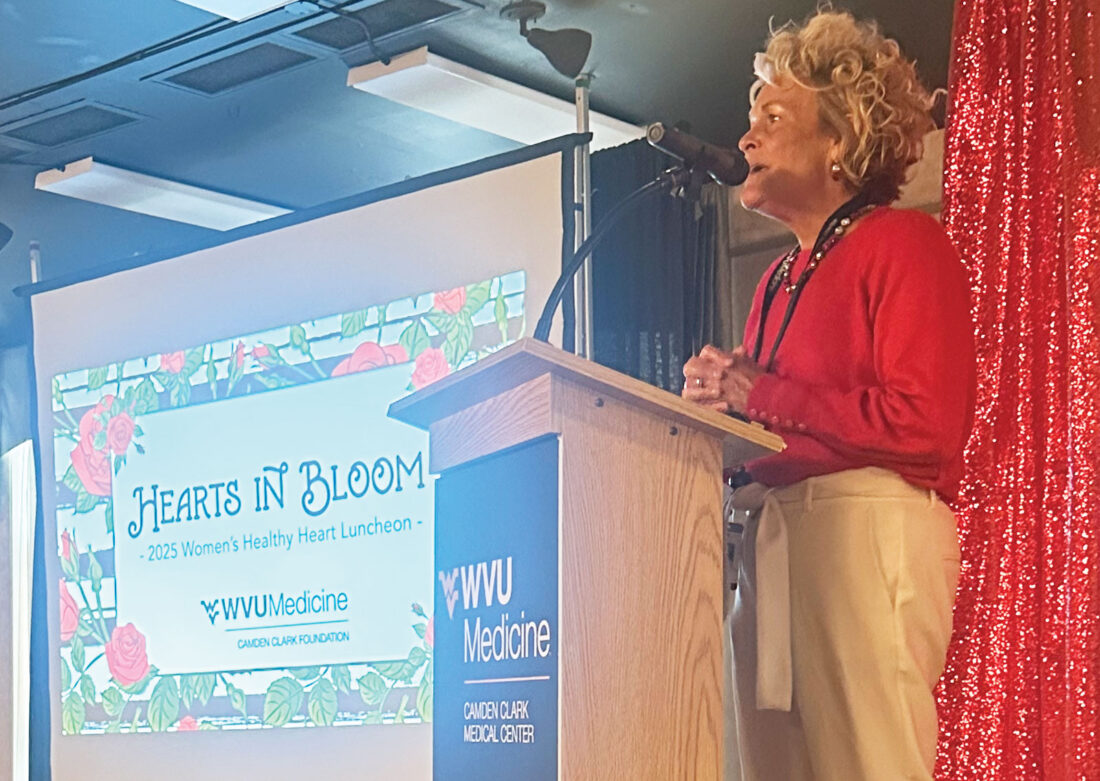
Camden Clark Foundation Executive Director Kim Couch welcomes attendees to the 2025 Women’s Healthy Heart Luncheon at the Parkersburg Art Center Friday afternoon. (Photo by Gwen Sour)
PARKERSBURG — The Camden Clark Foundation held the 2025 Women’s Healthy Heart Luncheon: Hearts in Bloom at the Parkersburg Art Center on Friday.
The luncheon aimed to provide a heart-healthy meal while providing the latest information from Camden Clark’s cardiology team.
A highlight of the luncheon was the presentation by Dr. Kim Stooke and Dr. Sharilida Vance, who are two Thrive coaches from WVU Medicine Camden Clark. The duo introduced attendees to Thrive: Cultivating Energy to Be Your Best Self, a program designed to help individuals manage their energy effectively to become their best selves. Originally developed as an initiative to combat burnout among hospital staff, Thrive has since grown into a comprehensive approach to well-being that focuses on energy cultivation and balance.
“Our goal today is to help you apply the principles of Thrive to your heart health,” said Vance. “We all know time is difficult to manage, but the key is how we invest our energy. When we focus on energy management, we enhance our performance, improve our health, and increase happiness.”
The Thrive program is structured around what Vance and Stooke call the “energy pyramid,” which consists of four dimensions:
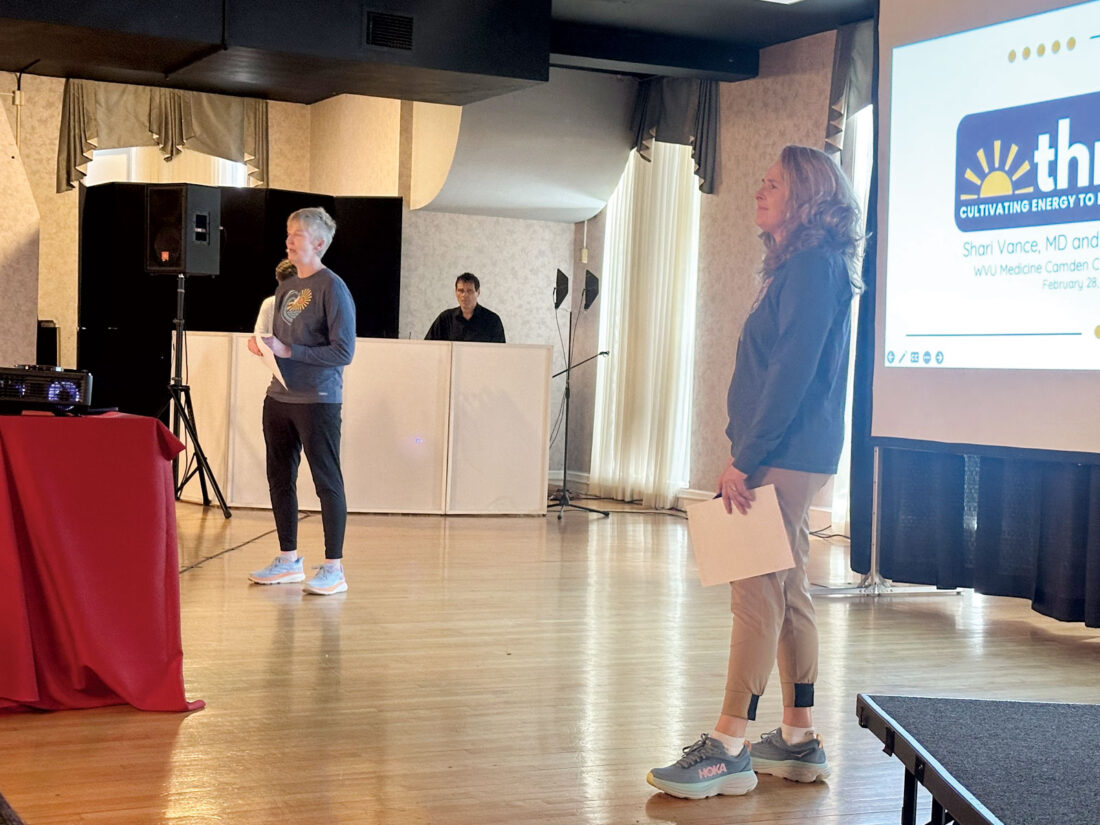
From left, Dr. Sharilida Vance and Dr. Kim Stooke give a presentation on Thrive, a program that focuses on energy management during the 2025 Women’s Healthy Heart Luncheon at the Parkersburg Art Center on Friday afternoon. (Photo by Gwen Sour)
* Physical Energy: Staying energized through exercise, nutrition, hydration, and adequate sleep.
* Emotional Energy: Cultivating positivity, reducing stress, and fostering meaningful connections.
* Mental Energy: Enhancing focus, mindfulness, and the ability to be present in the moment.
* Spiritual Energy: Aligning actions with personal values and finding purpose.
Participants engaged in a hands-on activity designed to help them create a personal heart health improvement plan. Each table was provided with worksheets outlining the energy pyramid and guiding them through self-assessment and goal-setting centered on how to improve one’s heart health. A component of the activity was developing rituals, intentional actions designed to build healthy habits over time. Vance and Stooke emphasized that unlike automatic habits, rituals require conscious effort until they become ingrained.
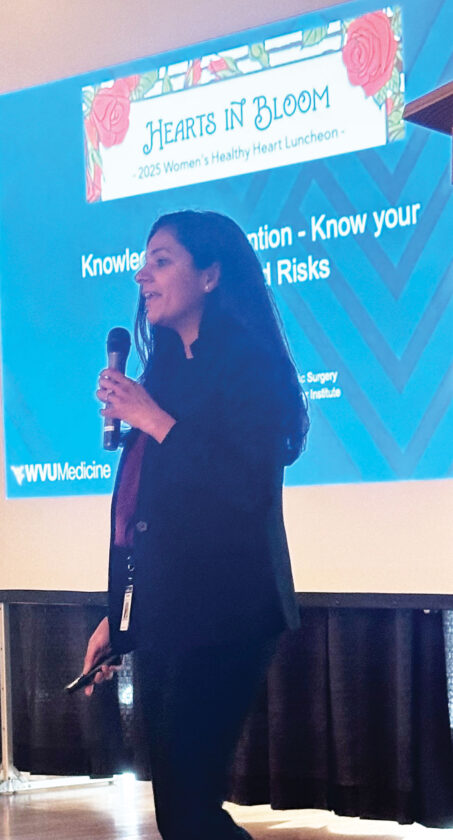
Dr. Jahnavi Kakuturu gives a presentation on heart health in women at the 2025 Women’s Healthy Heart Luncheon at the Parkersburg Art Center on Friday afternoon. (Photo by Gwen Sour)
Dr. Jahnavi Kakuturu, who is a part of the WVU Heart and Vascular Institute, shared her expertise on the medical risks associated with heart health in women. According to Kakuturu, heart disease is the leading cause of death for women in the United States, affecting approximately 60 million women.
The discussion highlighted how heart disease manifests differently in women compared to men and why awareness is critical.
Some of the risk factors include:
* The role of hormonal changes in increasing heart disease risk, especially post-menopause.
* The structural differences in women’s hearts, including smaller blood vessels, which contribute to conditions like microvascular disease.
* Pregnancy-related conditions like gestational hypertension and preeclampsia, which can increase the likelihood of heart disease later in life.
The presentation also covered the signs and symptoms of heart disease in women, which often differ from those commonly seen in men. While chest pain is a common symptom, women may also experience nausea, fatigue, dizziness, shortness of breath, and jaw or back pain, sometimes leading to misdiagnosis or delayed treatment.
Camden Clark Foundation Executive Director Kim Couch emphasized that heart health is important to monitor year round. Couch stated that the foundation has partnered with the Rotary Club to offer low-cost blood screening vouchers quarterly to help individuals keep track of their numbers.
“It’s hugely important that you know your numbers. So the people who are managing even a chronic illness where they need that every single quarter, or for people like today who haven’t had lab work done in a long time.” said Couch.
Gwen Sour can be reached at gsour@newsandsentinel.com

